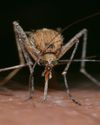
Researchers from the University of Copenhagen have not only found the formula for the synthetic production of the compound – they have even found a simple and sustainable recipe using ordinary yeast as the main ingredient. In China children are taught to steer clear of this plant. The plant, Thunder god vine (Chinese: 雷公藤), which in China has earned the nickname “Seven Steps to Death”, is so poisonous that a person risks death only a few steps after consuming it. But despite its deadliness, the Thunder god vine (Tripterygium wilfordii) hides something quite beneficial to us humans as well. Within its roots, the plant produces the compound celastrol, a chemical agent with powerful antiobesity properties.
Experiments using mice on a high fat diet have shown that the mice given celastrol gained 45% less weight than the control group.
Experiments with human cells have shown similar effects.
The effect is due to the fact that celastrol reactivates the body's sensitivity to leptin, a hormone to which overweight people become resistant. Leptin is one of the hormones that causes the body to burn more calories and thereby regulate weight. How does one get their hands on the 'good' substance without the toxicity that typically accompanies it? That is the question.
For obvious reasons, a person cannot just eat the plant and benefit from the drug. So what do we do? The problem with extracting celastrol from the nature source is that it is very hard to separate it from the other toxic molecules that the plant is full of. So far, there has been no effective method to achieve this.
هذه القصة مأخوذة من طبعة January - February 2024 من Scientific India.
ابدأ النسخة التجريبية المجانية من Magzter GOLD لمدة 7 أيام للوصول إلى آلاف القصص المتميزة المنسقة وأكثر من 9,000 مجلة وصحيفة.
بالفعل مشترك ? تسجيل الدخول
هذه القصة مأخوذة من طبعة January - February 2024 من Scientific India.
ابدأ النسخة التجريبية المجانية من Magzter GOLD لمدة 7 أيام للوصول إلى آلاف القصص المتميزة المنسقة وأكثر من 9,000 مجلة وصحيفة.
بالفعل مشترك? تسجيل الدخول

Building world's 1st pyramid
In a preprint study published this summer, researchers proposed that ancient Egyptians built the world's first pyramid the 4,700-year-old Step Pyramid of Djoser, which sits on Egypt's Saqqara plateau using a \"modern hydraulic system\" powered by a long-gone branch of the Nile River.

Climate change arms the world, ovarian cancer pulls the trigger.It's time we disarm them both
Climate change, driven by human activities, leads to environmental changes such as rising temperatures, altered weather patterns, and increased pollution.

Climate Change Added 18 mph to Hurricane Wind Speeds over Past 5 Years
High ocean temperatures caused by global warming boosted maximum intensities for most storms between 2019 and 2023, as well as for every 2024 hurricane.

How Indian Vulture Decline Led to 500,000 Deaths in 5 Years
Once a common sight across India, vultures were abundant scavengers, often seen circling landfills in search of carcasses.

Understanding Monkeypox: Insights and Implications
Monkeypox, a viral zoonotic disease, has gained significant attention in recent years due to its re-emergence and sporadic outbreaks globally.

AI predicts that most of the world will see temperatures rise to 3°C much faster than previously expected
Three leading climate scientists have combined insights from 10 global climate models and, with the help of artificial intelligence (AI), conclude that regional warming thresholds are likely to be reached faster than previously estimated.

Infrared Radiation: A New Player In Mosquito Host-Seeking
The sound of mosquitoes is all around us when the sun sets and the air gets warm and sweltering.

Fish Oil May Benefit to Cure Alzheimer's, disorder: new findings
The benefits of fish and fish oil consumption are well-known in medical science as fish is considered a precious food resource that provides sufficient nutrition to humans.

A new class of antivirals could help prevent future pandemics
The arrival of Paxlovid in December 2021 marked another turning point in the COVID-19 pandemic an effective antiviral that has since successfully treated millions.

Turning carbon emissions into methane fuel
Chemists have developed a novel way to capture and convert carbon dioxide into methane, suggesting that future gas emissions could be converted into an alternative fuel using electricity from renewable sources. Carbon dioxide (CO2) is a greenhouse gas that accounts for a large part of Earth's warming climate, and is produced by power plants, factories and various forms of transportation.